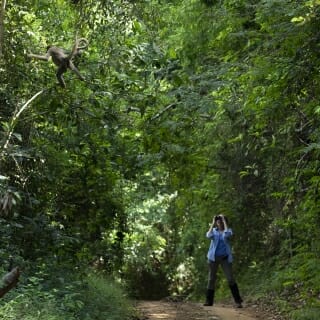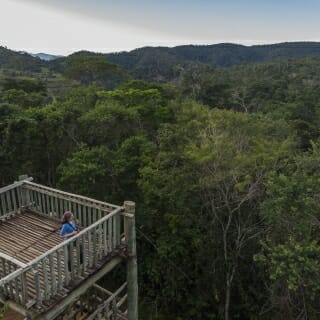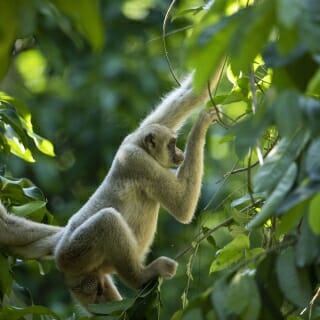Anthropology professor Karen Strier recognized as prominent primate conservationist in Brazil
Karen Strier, a Vilas research professor of anthropology at the University of Wisconsin–Madison, has been featured in the Women in Conservation series by National Geographic Brazil.
For 38 years, Strier has maintained a long-term study site on a protected reserve in southeastern Brazil near the city of Caratinga, in the state of Minas Gerais, where she studies a species of monkey known as the muriqui, often called the hippie monkey. Her research has shown that muriquis, unlike all other primates, live in unusually peaceful, egalitarian societies.

Karen Strier Photo: Bryce Richter
Strier’s work has also documented the muriqui’s flexible behavior in response to demographic changes. Her research continues to serve as a major reference point for how the results from non-invasive scientific field studies can contribute to conservation.
“This is the oldest long-term study on a primate in the oldest and most important neotropical area in the world,” Dr. Russell Mittermeier, chief conservation officer of Global Wildlife Conservation, told National Geographic Brazil. “There is no one in the world who has done so much to train people in a tropical country in the study of such an important primate. Karen deserves all the recognition. She did a lot for the development of science and primatology in this country.”
The Women in Conservation project, once complete, will feature a series of reports focused on some of the most important conservation projects in Brazil, all led by women. These efforts have, National Geographic Brazil reports, “transformed the regions where their research is being developed.”
“It is a tremendous honor to be recognized in this way for what has been my life’s work to study and conserve these amazing primates,” Strier says. “It has been a team effort, too, thanks to many dedicated colleagues who have worked tirelessly for muriqui conservation over the years. And, of course, there are the muriquis, the real stars of this story, whose peaceful way of life could be a model for our own.”
To learn more about the Strier and the Women in Conservation series, go here. Though the site is in Portuguese, many internet browsers will translate it into English.
Tags: anthropology, faculty awards







